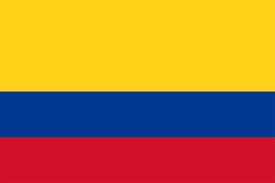Miscellaneous Projects during PhD
Status: Inactive
Dates: 2022-08-15 to 2023-08-15
Environmental Data Supply Chain:
Accurate, inclusive, and representative environmental data are essential for understanding and responding to climate change. As the final project for GT course CS 6745: Information and Communicaiton Technologies and Development taught by Dr. Neha Kumar, my teammate Leslie Dwolatzky and I explored the lifecycle of environmental data by conducting interviews with key stakeholders throughout the process and synthesizing them into findings on how the data pipeline impacts environmental equity through the concepts of technological determinism, reliance on individual initiative, and the financial framing of environmental degradation.
A variety of community, government, corporate, and non-profit stakeholders contribute to the sophisticated environmental data supply chain that collects, processes, disseminates, and uses these data. Because it works with environmental data, this data supply chain is typically perceived as value-neutral and resilient to procedural shortcomings. However, based on evidence from the literature, we argue that this supply chain is potentially vulnerable to systemic bias that privileges existing power structures and is thus at risk of inadequately serving marginalized communities (which are also found to be most at risk with regard to the effects of climate change). By applying an environmental data justice framework introduced by Vera et al. to interviews from stakeholders in the environmental data supply chain in the state of Georgia, this paper analyzes the implicit injustices in the current system and recommends improvements that avoid extractivism and promote equity. To achieve this end, this paper explores the common interview themes of technological indeterminism, individual vs. structural changemakers, and the monetary framing of environmental impact.
The study aimed to answer the following research questions related to environmental data equity:
- How does the environmental data supply chain operate in Georgia?
- How do stakeholders in the environmental data supply chain think about and promote equity?
- What equity shortcomings and fragilities exist in the environmental data supply chain and how can they be addressed?
Planning Local Wireless Networks Using LidDAR Data
Abstract: Open-source software tools for planning community wireless internet networks are limited in quality and amount of outside data they incorporate. Light Detection and Ranging (LiDAR) data from a community provides a 3-dimensional (3D) representation of the landscape, including buildings, trees, and other structures that could obstruct the Line-of-Sight (LoS) path between relays that is required to achieve adequate data throughput for many fixed wireless internet systems. This paper validates the potential of LiDAR-based 3D community models over conventional 2-dimensional (2D) models, such as what might be obtained with satellite imagery, in planning wireless networks by demonstrating that 2D models artificially limit possible relay locations. Using the town of Concord, Georgia, as an example, this paper reveals that, of 50 homes in the community, a 3D model found LoS between 22 houses, compared to just 4 houses for a 2D model. This finding has major implications for lowering material and maintenance costs in last-mile community wireless internet networks.
Environmental Data Ferries
I explored algorithms for coordinating community members to collect environmental sensor, drawing on previous work in “Message Ferries” where mobile agents transfer messages between endpoints. I created custom Python simulations to evaluate a few different algorithms on the amount of overall distance traveled and the fairness in distance travelled between different community members. Findings show that, by accounting for fairness when assigning new sensors to community members, the average distance travelled does not significantly increase while the standard deviation of distance traveled decreases by around 20%.
Hackpack Backpack
To decrease the burden and complexity of ecological field work, I led a team to develop a Hackpack, which is a wearable device that automatically wirelessly downloads data from in-situ sensors and provides the wearer with status information. This effort began as a class project for CS 7470: Mobile & Ubiquitous Computing at Georgia Tech, taught by Dr. Thomas Ploetz. The current prototype uses a Raspberry Pi that communicates via Bluetooth to pull data from sensors, check for common warnings and errors such as missing timestamps or low battery, and displays this information on the user’s smartphone. The Hackpack stores the data until the user has reliable Internet coverage, eliminating the need to physically connect to a sensor to download data or to use a laptop in the field to ensure the data and sensors are working as expected.
Colombia Connectivity
Through a partnership between the U.S. Department of State Diplomacy Lab and the Georgia Tech Computing and Society Lab, we are working with the U.S. Embassy in Colombia to understand and improve Internet access in various region there.
As of the spring of 2023, our main role is in providing technical expertise on Internet measurement and the tradeoffs between technology, such as fiber optic, fixed wireless, and satellite, that could be used to expand Internet. We are in the process of compiling a report that explains and compares these technologies, presents case studies where these technologies have been used successfully in the past, and makes recommendations for concrete steps the Colombian government could take. Per the embassy’s request, the report focuses on regions that were historically most affected by conflict and are now prioritized for economic development.

